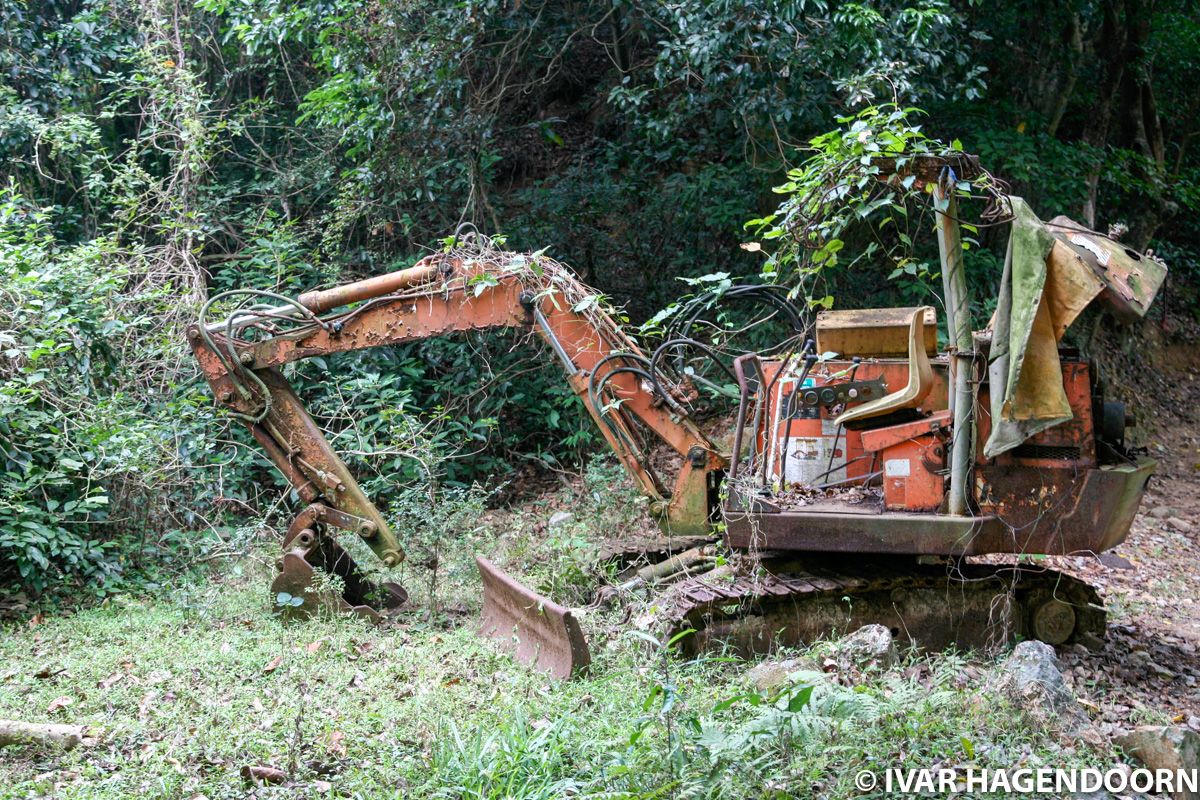
Half-way into The Map and the Territory, the new novel by Michel Houellebecq, Houellebecq is brutally murdered. His publisher tells the police officers, who investigate the crime, that he had a lot of enemies, though none of them would be capable of murder. It is as if Houellebecq wanted to say that this time around he didn't spare himself either.
The Map and the Territory tells the story of an artist, Jed Martin, who, more or less despite himself, achieves fame and fortune. Martin graduates from Paris's art academy with a series of 11,000 photos of everyday objects. After working as a commercial photographer Martin enjoys some success with a series of close-up photographs of Michelin maps of parts of France.
At the opening of the group exhibition where his photos are first exhibited he meets Olga, a young beautiful Russian woman who works with Michelin. She arranges for Jed's first solo exhibition in the recently opened Espace Michelin, which marks Martin's artistic breakthrough. The exhibition is aptly called "The map is more interesting than the territory". Several weeks later Olga announces that she has accepted a promotion, which will send her back to Moscow.
After Olga's departure Jed abandons photography and returns to painting. The early paintings depict traditional professions, such as a butcher and a baker, but in his later work he turns to scenes emblematic of the early years of the 21st century: captains of industry, board rooms and bankers.
For his second major gallery show, several years after his first show, his gallerist convinces Martin to invite Michel Houellebecq to write an essay for the catalogue. This is how Martin gets to meet Houellebecq. The show is a major critical and commercial success and earns Jed a fortune. He also learns that Olga has returned to Paris. After they have spent the night together Jed realizes, in one of the book's most beautiful passages, that it is too late and that life has retaken its cards.
"Olga était douce, elle était douce et aimante, Olga l'aimait, se répéta-t-il avec un tristesse croissante en même temps qu'il réalisait que plus rien n'aurait lieu entre eux, ne pourrait jamais avoir lieu entre eux, la vie vous offre une chance parfois se dit-il mais lorsqu'on est trop lâche ou trop indécis pour la saisir la vie reprend ses cartes, il y a un moment pour faire les choses et pour entrer dans un bonheur possible, ce moment dure quelques jours, parfois quelques semaines ou même quelques mois mais il ne se produit qu'une foi et une seule, et si l'on veut y revenir plus tard c'est tout simplement impossible, il n'y a plus de place pour l'enthousiasme, la croyance et la foi, demeure une résignation douce, une pitié réciproque et attristée, la sensation inutile et juste que quelque chose aurait pu avoir lieu, qu'on est simplement montré indigne du don qui vous avait été fait." (p.251)
As in The Elementary Particles and The Possibility of an Island part of The Map and the Territory is set in the near future. But instead of a great technological leap forward it is as if the clock has been turned backward. Another financial crisis has reduced France to a popular holiday destination for wealthy Chinese and Russian tourists and the people who live in the countryside have returned to practising old trades to please the tourists.
I enjoyed reading The Map and the Territory, in part because I know the art world in which much of the novel is set so well. At times I found myself laughing out loud. The titles of Jed Martin's paintings and the excerpts from Houellebecq's catalogue essay are hilarious precisely because they could have been real. Compared with his previous novels there's very little sex. Instead, Houellebecq writes with much affection about Jed Martin's relationship with his aging father.
Oddly, the fictional works of Jed Martin sound quite interesting. Indeed, while reading The Map and the Territory it occurred to me that some of Martin's and Houellebecq's preoccupations are quite similar to my own work. Le triomphe de la végétation est total.
Links
Excellent interview with Michel Houellebecq about La Carte et le Territoire (in French).